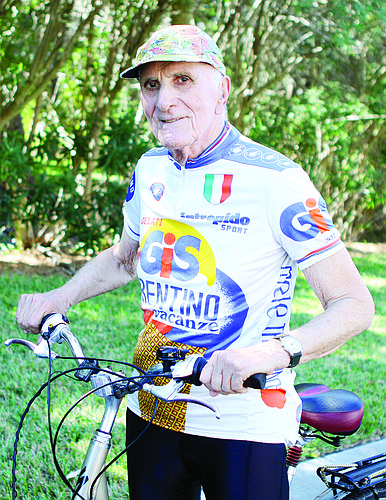- May 1, 2024
-
-
Loading

Loading

A few months ago, this column featured a piece by Dr. Arthur Ancowitz, a retired cardiologist and Longboat Key resident, that dealt with heart attack and stroke with a focus on prevention. This month, Ancowitz answers questions on the topic.
What is the difference between arteriosclerosis and atherosclerosis ?
The difference is a matter of semantics; both terms refer to hardening of the arteries. The word atherosclerosis is of Greek origin; “athere” means wax, and “sclerosis” means hardening process. Arteriosclerosis and atherosclerosis are terms that are often used interchangeably.
Please explain cholesterol.
Cholesterol is a waxy, fatty substance that is present in the cell walls of our body. It is manufactured in the liver. Another source of cholesterol is the food we eat.
Because cholesterol is insoluble, it travels through the blood bound to protein, hence the name lipoprotein. High-density lipoproteins (HDL) are the good kind. HDL keeps cholesterol from building up in the walls of arteries. Low-density lipoproteins (LDL) are the ones that build up in the walls of arteries. Cholesterol control is a worthwhile objective, achievable by a diet of low-fat products, cholesterol-free products and sources of fiber, medication and exercise.
Please comment on high blood pressure and salt in the diet.
Lower salt intake can improve blood pressure and reduce the risk of heart disease and stroke. Slashing current salt intake from 10 grams of salt a day to one to two grams a day would save lives. The salt shaker is an offender but not the chief offender — processed foods are. The food industry is gradually reducing the amount of sodium added to foods. Pickled, cured, smoked and canned foods contain excessive amounts of salt. Bacon, hot dogs, potato chips and pretzels are also rich in salt. Salt substitutes and other flavorings and spices such as ginger, paprika, oregano, garlic, onion and curry don’t contain salt.
Can I avoid getting a stroke?
Stroke prevention is possible and likely. A normal blood pressure is important in stroke prevention. Check your blood pressure frequently. High blood pressure, or hypertension, usually causes no symptoms. Your blood pressure can be checked by your physician. Pharmacies and local YMCAs often have blood-pressure machines you can use. Home blood-pressure monitors are becoming affordable. High blood pressure is a major risk factor in stroke that can be corrected.
Why is exercise important in stroke prevention?
Exercise helps control weight. Being overweight can produce diabetes and contribute to causing high blood pressure. Try to build up to walking a couple of miles three to four times a week. Exercise can contribute to a feeling of wellbeing due to the circulation of endorphins, which are morphine-like substances produced by the brain. Exercise also serves as an outlet for tension. Centuries ago, the wise philosopher Plato said, “Lack of activity destroys the good condition of every human being, while movement and methodical exercise save it and preserve it.”
What else can I do to prevent stroke?
Reduce your bad (LDL) cholesterol with diet, exercise and medication. Try to elevate your good (HDL) cholesterol. It keeps cholesterol from building up in the walls of arteries.
Does the incidence of stroke vary between men and women?
The female population carries a higher stroke risk than men, because women have a longer life expectancy.
Can you comment on irregular heartbeats and stroke?
Irregular heart rhythms, such as auricular fibrillation, are associated with about 20% of strokes. Medication to prevent clotting (such as Coumadin) is important in this condition to prevent stroke.
Are auricular fibrillation and atrial fibrillation the same or different conditions?
They are the same.
Can manipulation and compression around the neck cause stroke?
Hyperextension of the head, as in shampooing and chiropractic manipulation, can compromise arteries delivering blood to the brain and thereby cause strokes.
Are we winning the war against arteriosclerosis?
Promising research is coming to fruition. Medication to raise levels of high-density lipoproteins is on the way. Vaccines may be developed. Most important is greater public awareness about heart attack and stroke prevention. Yes, we are winning, but we have a long way to go.
Molly Schechter is an ACE-certified personal trainer with a specialty in older adult fitness plus YogaFit Instructor Training, SCF Yoga Fundamentals and Power Pilates™ Mat Certifications. She teaches classes at the Bayfront Park Recreation Center and the Longboat Key Club. E-mail her at [email protected].